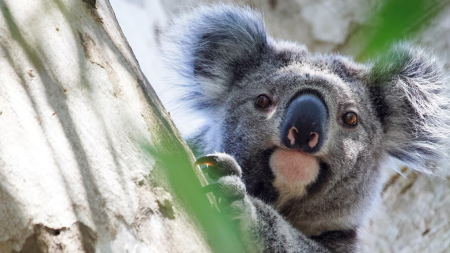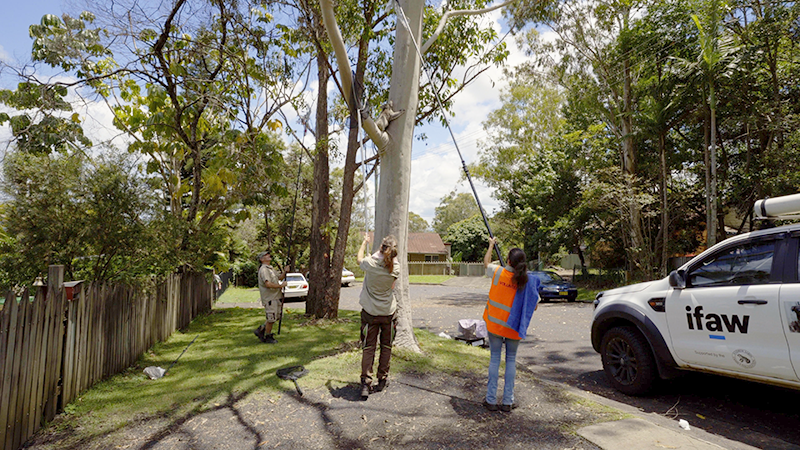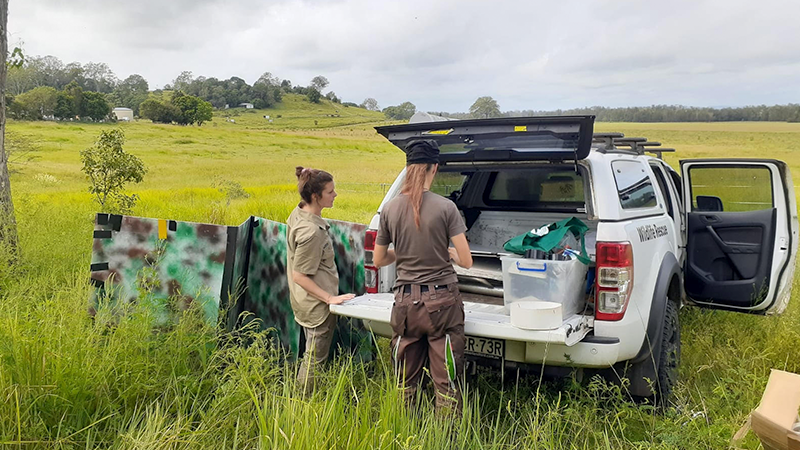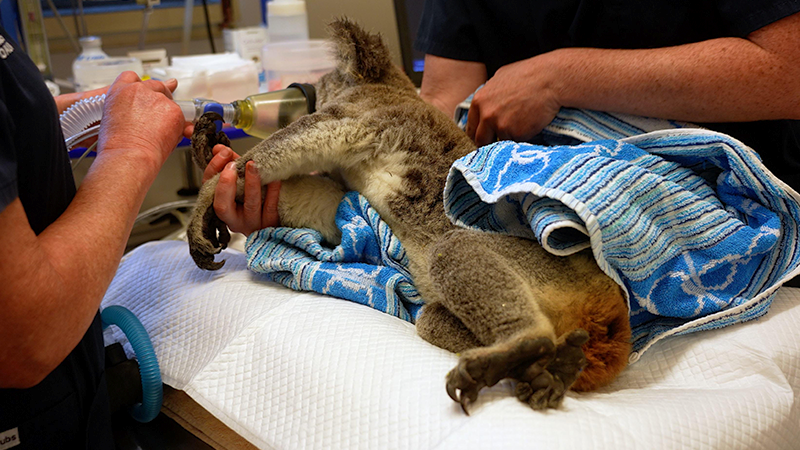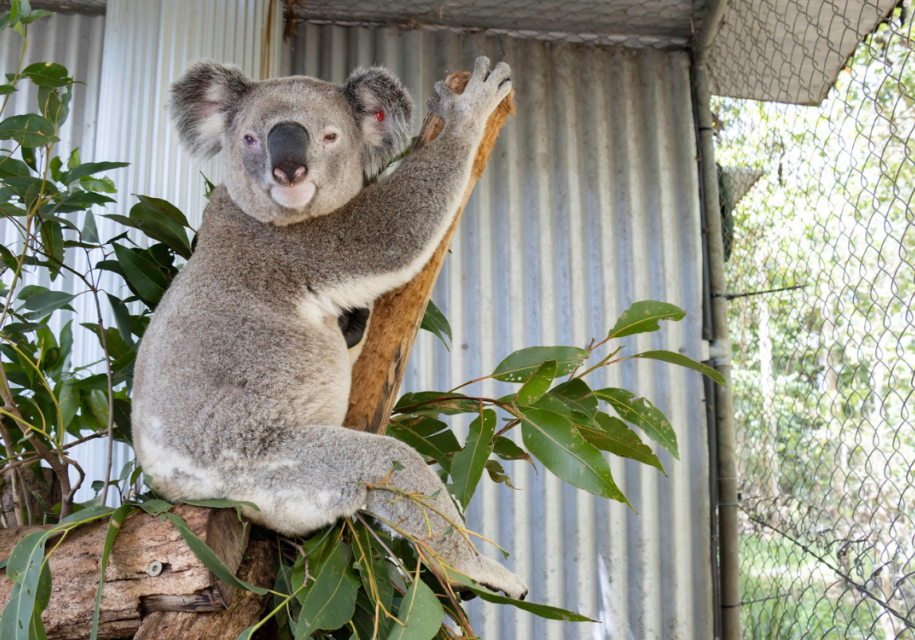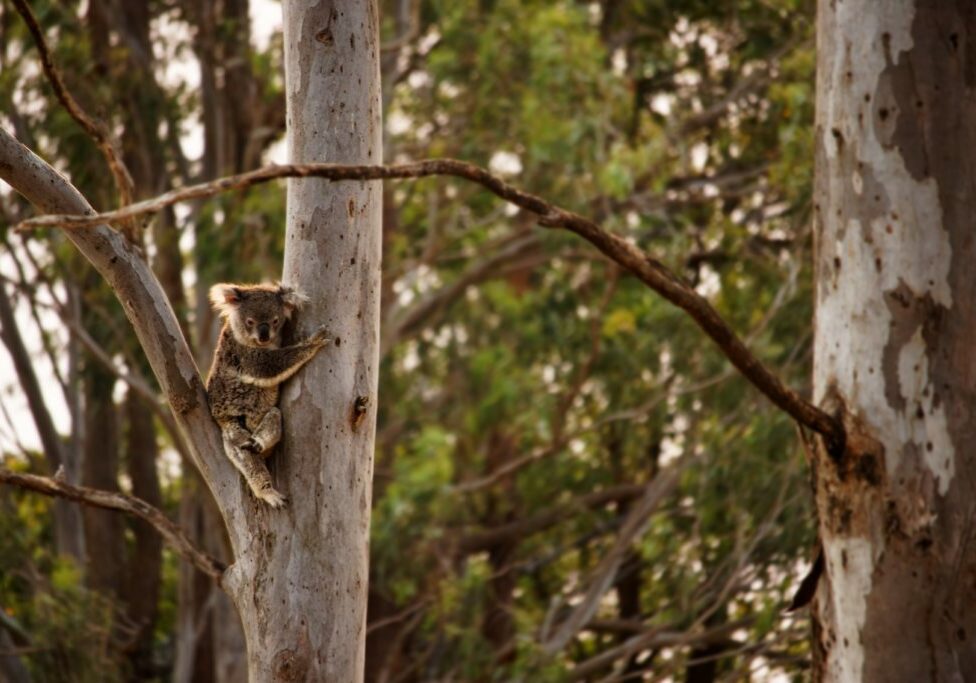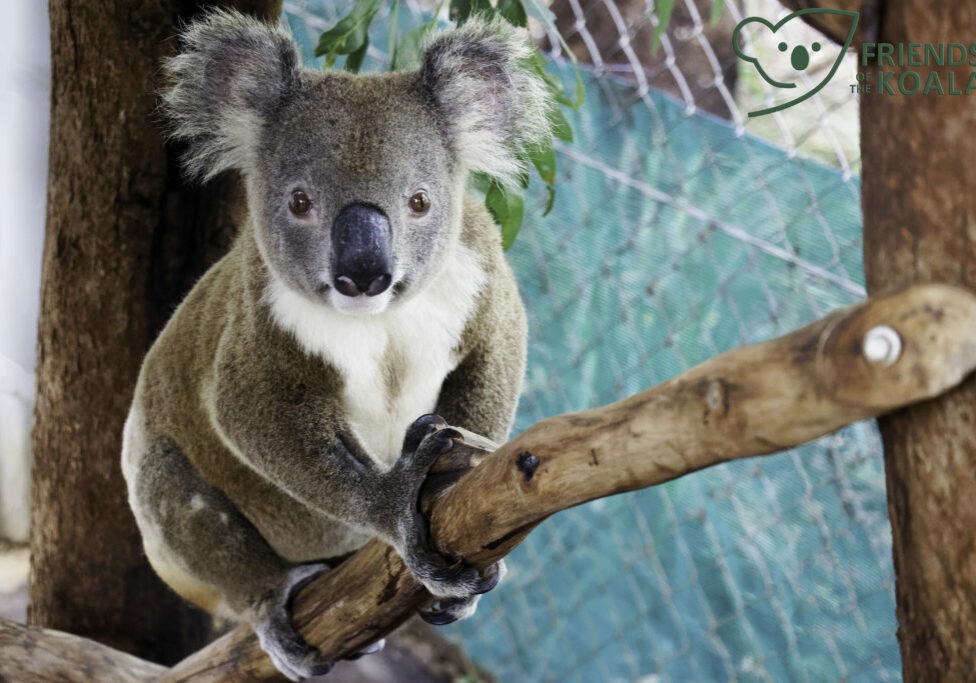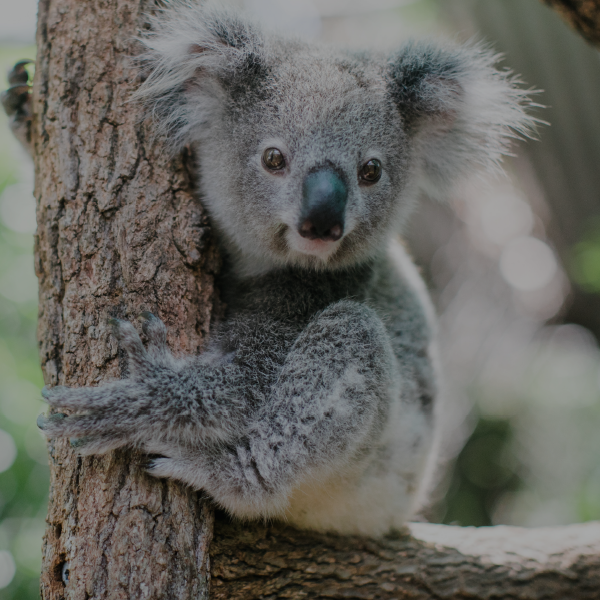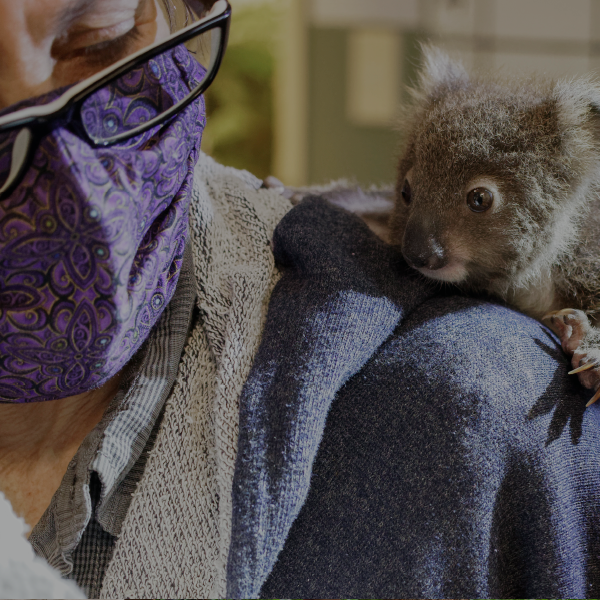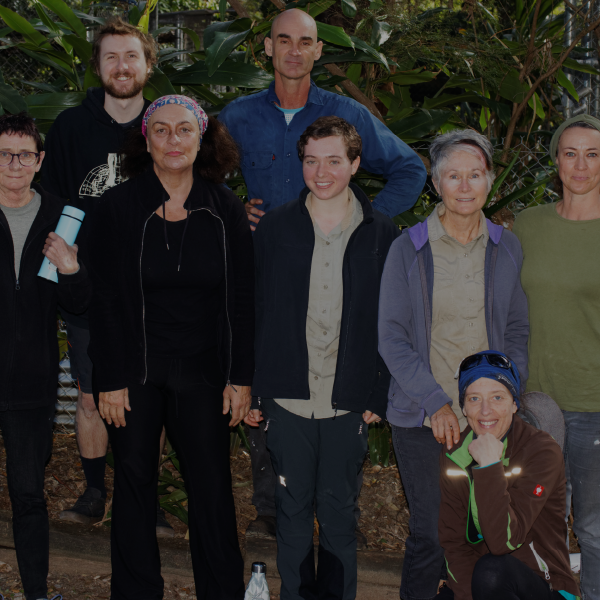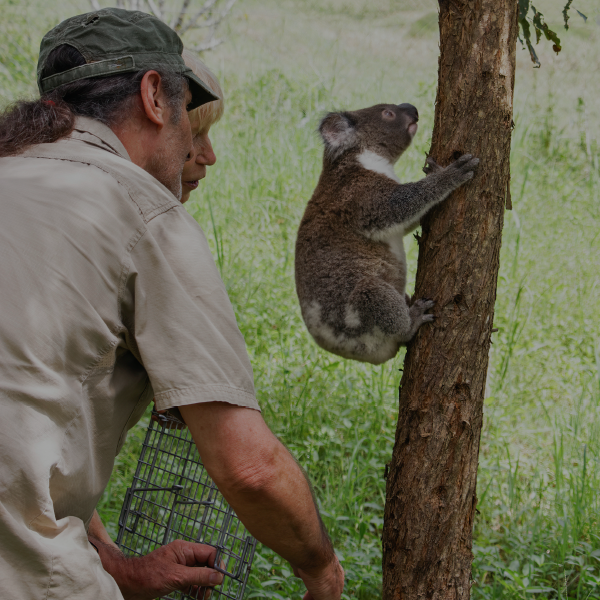Friends of the Koala on site
Each year Friends of the Koala rescues over 350 sick, injured and orphaned koalas. Our 24/7 Rescue Hotline receives calls from members of the public who either need advice or encounter a sick, injured, or orphaned koala within the Northern Rivers region. Trained rescue volunteers attend the call out, assess the situation thoroughly and if necessary, undertake the rescue. Once carefully contained, koalas are transported to our Koala Hospital for treatment.
On admittance to the Koala Hospital, koalas are assesssed and treated by our amazing veterinary team. Every effort is made to save and release sick and injured koalas, however, those with a very poor prognosis are euthanased to prevent further suffering.
Koalas can be in rehabilitation anywhere from a few hours to several months, depending on the case. While in care, koalas are monitored daily and receive specialised veterinary treatment.
Upon release, koalas undergo a final vet check. Depending on the length of their rehabilitation, koalas may need to be transferred to a soft release enclosure where they can regain muscle strength before their eventual return to the wild.
In most cases, koalas are released back to their home range. If we are unable to return them to the exact tree from which they were rescued, we release them as close to that tree as possible.
How to identify a koala in need of help
A sick, injured or orphan koala
Sick koalas can have red, swollen, pussy or crusty eyes, fur loss anywhere on their body, brown, stained rumps, an unpleasant smell, and their fur is often dry brown or matted. They may also have discharges from their mouths, ears, eyes or cloacas.
Sick koalas are often slow to respond, if at all, to humans and can be touched without responding. They are generally found low to the ground or on the ground except when moving between trees, and can stay in the same tree without moving for more than a few days. Their gait is abnormal or uneven, and they can be disorientated, walking in circles.
Some injuries, such as bleeding from any part of their body or broken bones are obvious. However, some injuries, such as dog bites, are often not visible, but if there are dogs in the vicinity there’s always a chance that the dog (no matter how small) has bitten a koala. In these cases, contact you local koala rescue group immediately.
Koalas smaller than a soccer ball when curled up may be orphans, and need to be assessed by an experienced koala rehabilitator. Similarly, pouch or back young koala orphans, where the mother has been killed by a dog or car, need to be placed with an experienced koala rehabilitator immediately.
A koala sitting on the ground, unresponsive to what is around it, is a very sick koala and needs attention IMMEDIATELY.
Call our Koala Rescue Hotline if you live in the Northern Rivers of NSW or your local wildlife organisation if outside this area – search online for your local wildlife organisation.
A healthy koala
Healthy koalas have a thick, grey coat with white markings, bright eyes and a rounded full belly. They respond when startled, spend most of their time high in trees (not necessarily a koala food tree), move and climb well and have no discharge from their eyes, nose, mouth, ears or cloaca.
Healthy koalas have a pleasant koala smell and being wild animals, will bite and scratch if handled by humans. If they’re on their own and larger than a soccer ball, they’re adults. Koalas smaller than this on their own may be orphans and need to be looked at by an experienced koala rehabilitator.
Report a Koala Sighting
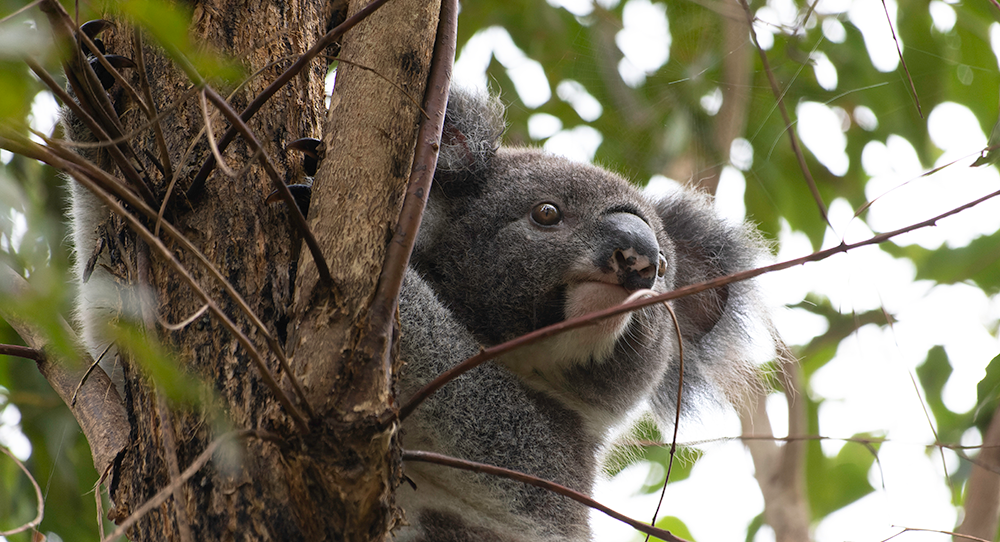
Our Koala Rescues in numbers
Sir Lancelot
The 2000th koala to be rehabilitated and released into the wild.
Sir Lancelot was rescued on the 16th March 2022 from Durheim Rd, Monaltrie. When you see his regal face, you’ll know how he got his name!
He was spotted with a wet and stained rump and following an initial assessment his body score was quite poor, only 3 out of 10. Sir Lancelot weighed 5.9kg but he was feisty and very vocal – this is what we love to see!
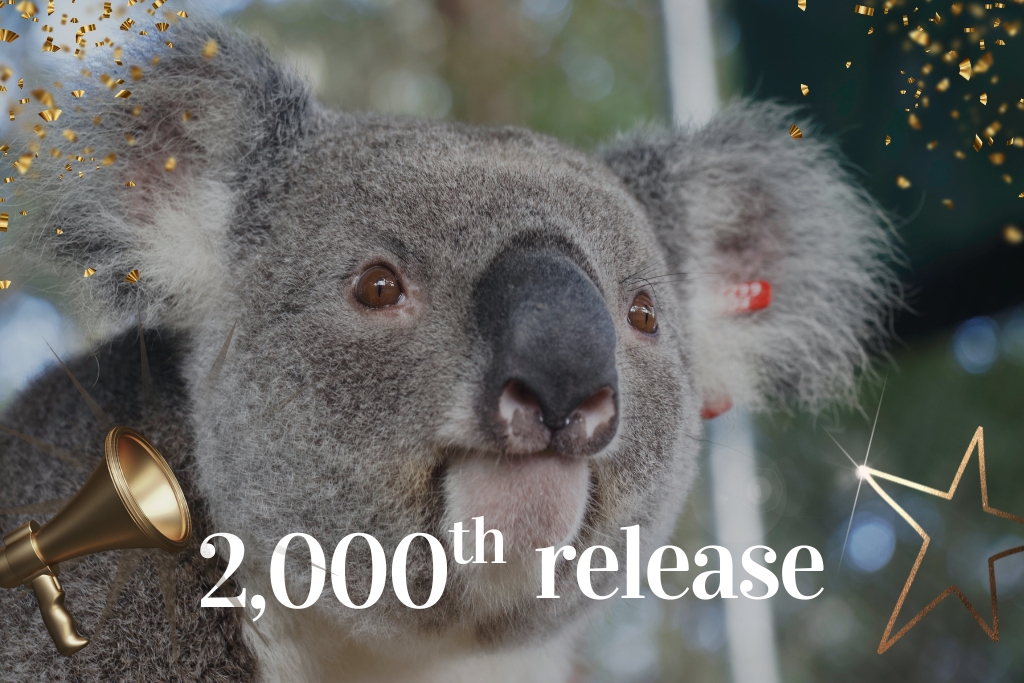
Treatment went well and, finally, on the 26th of May 2022, weighing 6.67kg, Sir Lancelot had fully recovered and was released back to his home in the wild.
Sir Lancelot’s rescue, rehabilitation and release means that Friends of the Koala have saved the lives of over 2,000 koalas, this is really big news!

